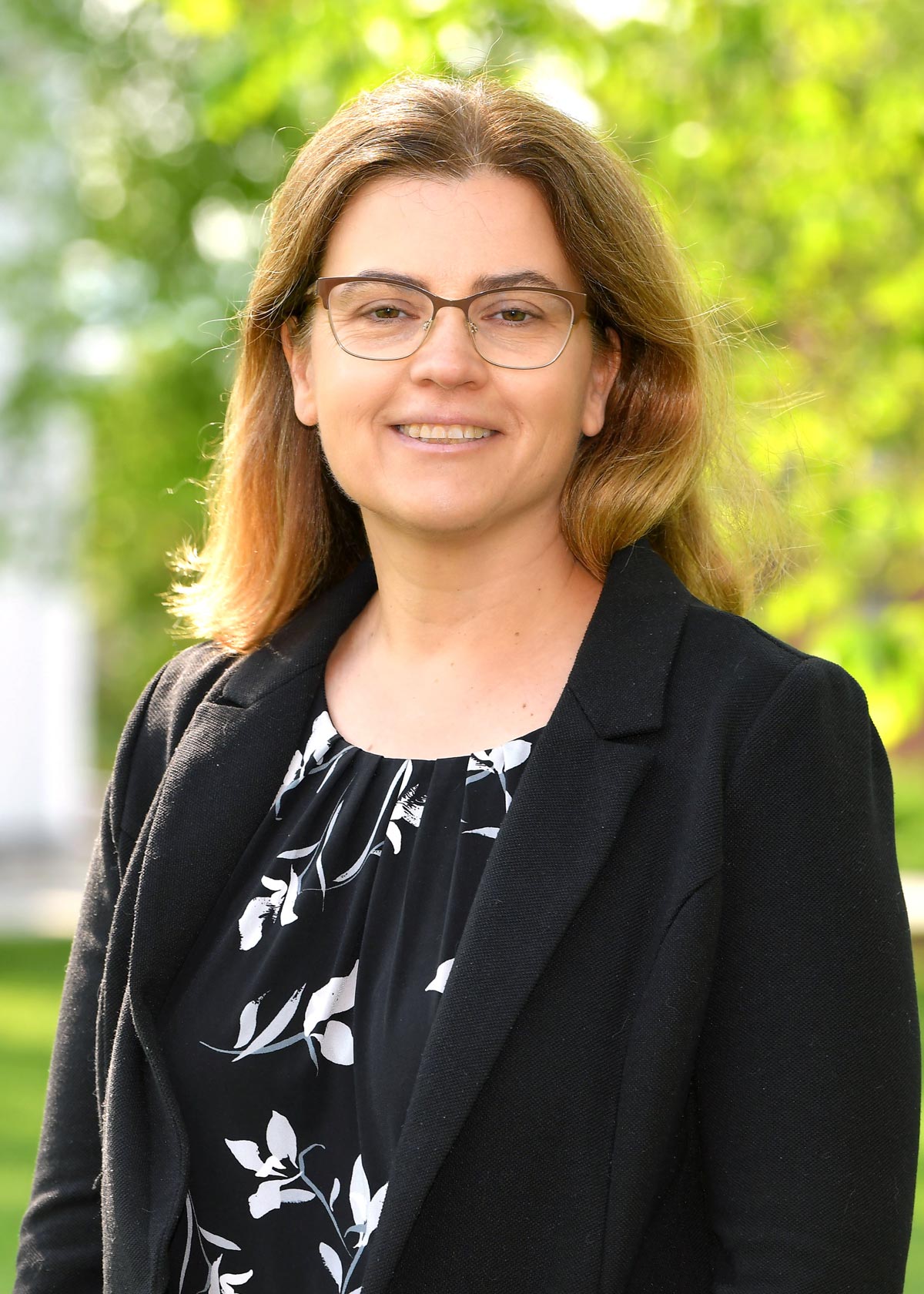Interim Provost and Vice President of Academic Affairs
Professor of Sociology
Co-coordinator, Journalism Studies
Education
Ph.D., M.A., Boston College
B.A., Clark University
About
Karen McCormack is an Associate Provost of Faculty Affairs and Academic Administration and Professor of Sociology.
Karen’s work explores the intersections of inequality, community, and technology. Her current work explores the growth of informal economic activity (trading or selling goods and services outside of the formal economy). Karen and her research colleagues are exploring how these informal strategies function as a survival strategy and the impact that these have on community cohesion. Karen’s work has also focused on poverty and debt, along with the creation of community among mountain bikers through technology.
In the classroom, Karen’s courses examine organizational culture and structure and systemic inequalities. Through courses like Telling Stories with Data, Research Methods, and Research for Nonprofits, Karen works with students to develop methodological and data analysis and presentation skills.
Karen works on several college-wide strategic initiatives; she co-chaired the Curriculum Design and Curriculum Implementation teams which designed and rolled out Wheaton’s unique Compass general education curriculum for which she has since served as coordinator. Karen currently co-chairs the Experiential Learning Task Force, working across divisions at the college to reimagine the future of experiential learning.
Publications
2017. “Building Community Online and On the Trail: Communication, Coordination, and Trust among Mountain Bikers.” Information, Communication, and Society, published online first.
2015. “Understanding Foreclosure Risk: The Role of Nativity and Gender,” with Iyar Mazar (Wheaton class of 2010). Critical Sociology 41(1): 115-132.
2014. “Credit and Credibility: Homeownership and Identity Management in the Midst of the Foreclosure Crisis.” Sociological Quarterly 55(2):261-281.
2014. Service Sociology and Academic Engagement in Social Problems, with A. Javier Trevino. Ashgate Publishing.
2012. “Comfort and Burden: The Changing Meaning of Home for Owners At-Risk of Foreclosure. Symbolic Interaction 35(4):421-437.
2011. New Media Review: “Sociology in the Blogosphere?: Exploring Sociological Images.” Visual Studies 26(2):169-173.
2009. “The Place of Resistance”, in Studies in Law, Politics, and Society.
2006. “Resisting the Welfare Mother” with updated afterward. In Culture, Power, and History: Studies in Critical Sociology, edited by Stephen Pfohl, et. al. Brill Publishing, pages 261-291.
2005. “Stratified Reproduction and Poor Women’s Resistance.” Gender & Society 19: 660-679.
2004. “Resisting the Welfare Mother: The Power of Welfare Discourse and Tactics of Resistance.” Critical Sociology, volume 30(4): 354-383.
Teaching Interests
I regularly teach several core courses in sociology (Intro to Sociology, Analyzing Social Trends, Senior Seminar) as well as specialized courses in race and ethnicity, media, organizations, and community.
I am interested in teaching strategies that that take students out of the classroom and into the community in various ways. Two recent examples: students in Community in the Digital Age are interviewing seniors at the Norton Senior Center about their uses of communication technologies, at once learning about qualitative research methods and about digital inequities in access to technology. In Research Methods, students practice research techniques in the Wheaton Archives, on campus, and in the larger community. In How Organizations Work, students taking the class at the 300-level with work as interns in area organizations.
Research Interests
The central questions that animate my research projects focus on how individuals and collectives respond to social problems. I have examined the experiences of people experiencing foreclosure and those receiving public assistance to understand the strategies that people employ to respond to, make sense of, and resist dominant discourses that position and blame them for broader economic and social problems. My current research extends these concerns to ask how new information and communication technologies allow people to find new ways to create community, and whether these technologies widen or narrow access to resources and information.
I also recently completed a project examining how families at-risk of losing their homes to foreclosure redefine the meaning of home and strategize to protect themselves and their families from the negative impact of home loss. I am particularly interested in the policy implications of this work, which point to the need for: fairer and more equitable financing; more information and bilingual communication; and more and better rental options. This work was featured on NPR’s Academic Minute.
